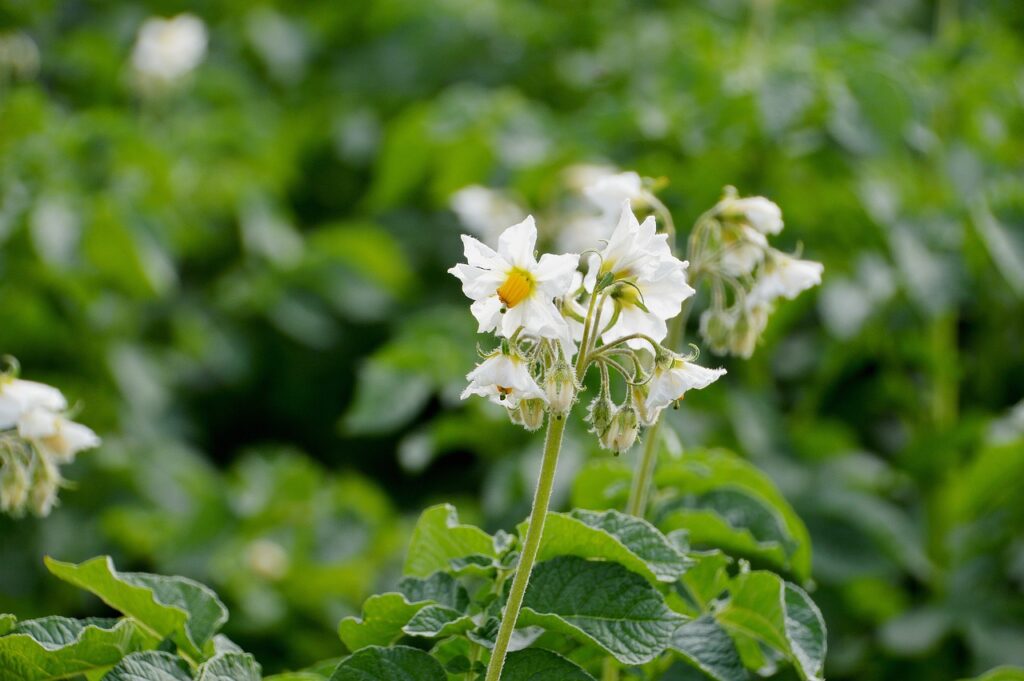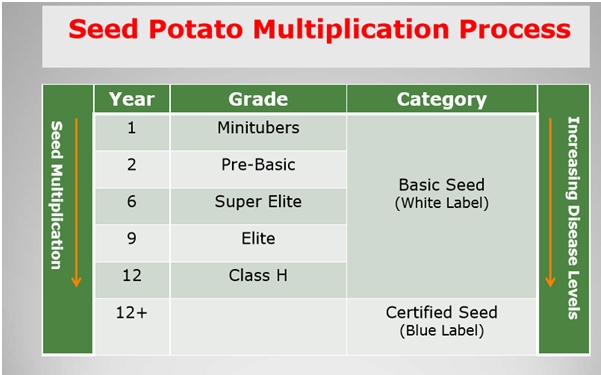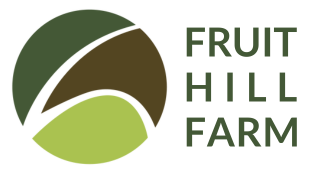We use cookies to make your experience better. To comply with the new e-Privacy directive, we need to ask for your consent to set the cookies. Learn more.
What are 'Certified' Seed Potatoes?

What are 'Certified' Seed Potatoes?
Certified seed potatoes are seed that has been certified for purity and freedom from disease by the Dept of Agriculture. Each seed crop is inspected to confirm the identity of the variety, to ensure that it meets the minimum level of varietal purity and that it meets certain plant health and pest infection standards.
The Irish Department of Agriculture were the first official body in Europe to establish a Seed Potato Certification Scheme in 1918. This ensured variety purity and disease and virus freedom. You should only buy seed potatoes that are ‘certified’.
To be certified, seed potatoes must be grown on land that has been approved by the Department. It must be Potato Cyst Nematode (eelworm) free and have not been used for growing potatoes in the last 6 years. Only certified seed (from Raphoe in Donegal - see below) can be used. Accurate records must be kept at all stages by the grower to ensure purity and the disease/virus freedom of the crop. Crops are regularily inspected throughout their life. They are 'certified' at their final inspection before they are released for sale.
How are the original certified seed potatoes made? Potatoes grown from tubers or seed potatoes produce an exact genetic clone of the mother plant. Seeds potatoes from a crop of Orla will grow on to produce another crop of Orla. However, potato seed can only multiply onward for a limited time before it starts to develop viruses and other problems. After about 12 years the purity and health of the seed is compromised and breeders have to start afresh to make new Orlas. (While many people save their own seed it is fair to say that after a period of time they will start to experience problems with their crop as the seed becomes compromised)
The Irish Potato Propagation Centre is in Raphoe, Co. Donegal. The Potato Laboratory produces disease-free potatoes for the Seed Certification Scheme through a process called micropropagation. The Potato Laboratory maintains a collection of more than 300 virus-free potato varieties and provides new seed through the process of micropropagation each year to seed potato growers.
Micropropagation
Click here for a PDF of this information.
- Tubers from virus-tested plants, which have been tested for bacterial-rotdiseases, are allowed to sprout in the laboratory.
- Sprouts are removed from the tuber and surface-sterilised. The meristem (tissue found at the growing point of all plants and free from pathogens) is cut from the sprout tip under a dissecting microscope and transferred to a liquid growth medium.
- The meristem develops to form a microplant.
- The microplant is cut to give nodal cuttings.
- Nodal cuttings are planted in solid growth medium. Each nodal cutting produces a new microplant.
- Microplants are transplanted into soil-free compost in an aphid-proof tunnel or glasshouse and allowed grow for up to 100 days.
- Minitubers are harvested, stored in a cold room and sold on to seed growers the following spring.
Potato Grading - Ireland is restricted to ‘White Label’ Seed - ie Basic Seed Potatoes that have only been grown onwards for twelve years. Some other countries allow Blue Label Seed.

Potato Plants from True Potato Seed - Potato plants produce small green fruits (berries) filled with hundreds of seeds. The fruit, although similar in appearance to a tomato, should never be eaten. It contains toxic solanine, which can cause headaches, diarrhea, cramps, and in some cases, coma and death.
Potatoes grown from true potato seed are not clones and will have different characteristics than the parent plant. True potato seed is most often used by plant breeders to facilitate hybridization and fruit production.
All Fruit Hill Farm seed potatoes are certified and the vast majority are also certified organic. Browse our selection here.

